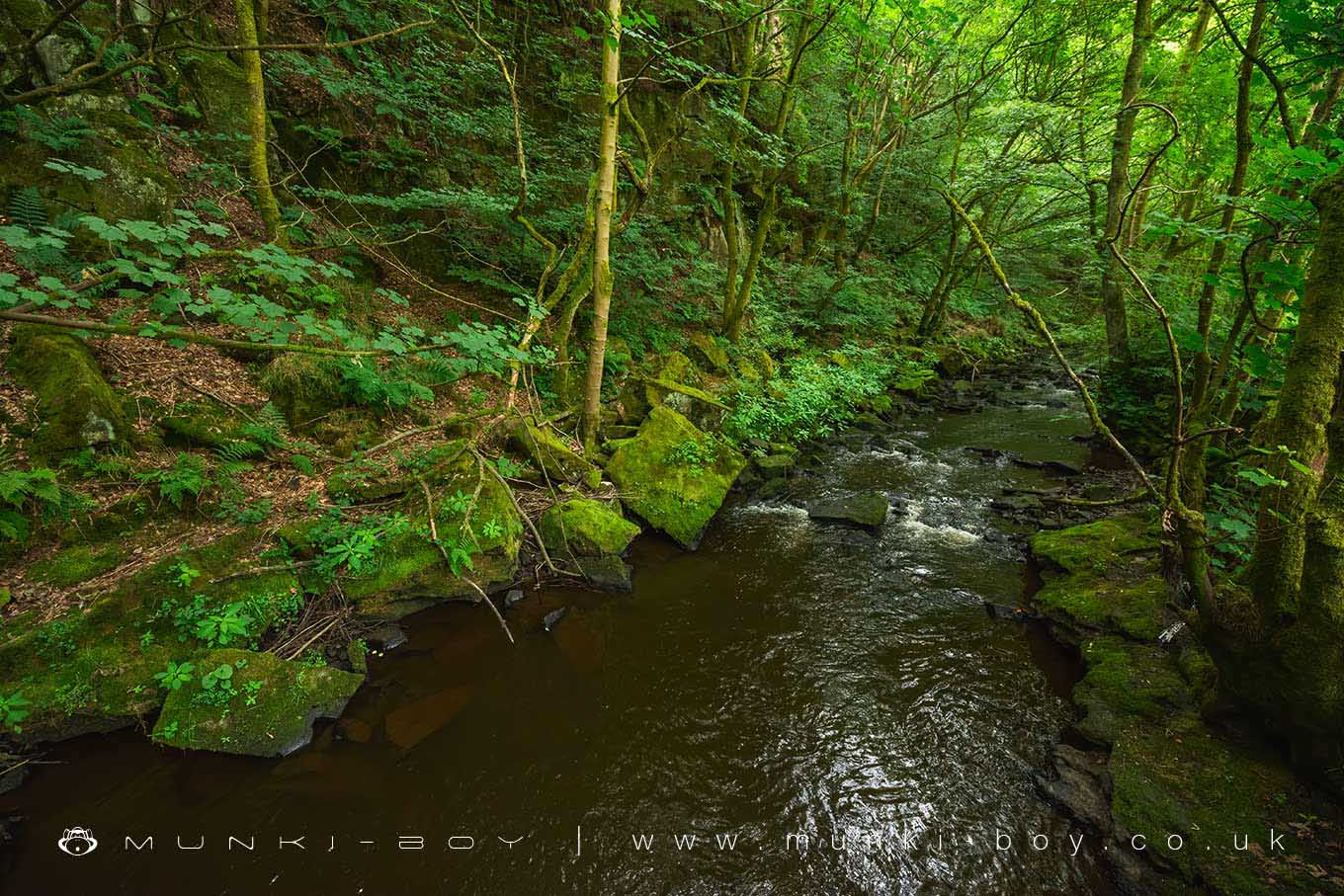
Eagley Brook by munki-boy
Eagley Brook
Eagley Brook once powered part of Bolton’s industrial revolution and was heavily polluted. Now returning to nature with plenty of industrial remains hiding under foliage.
Rising on the moors above Belmont the river flows out of Belmont Reservoir - named on the map as Belmont or Eagley Brook, until after the Longworth Clough with its sprawling old paper mill the confluence with Delph Brook is reached and the river becomes just Eagley Brook. After the village of Eagley the river bends toward Bolton and flows through a series of sharp bends with steep rocky sides, Eagley Brook flows into the River Tonge.
An intersting section of Eagley Brook for industrial remains can be found as the brook heads towards Birtenshaw where a foot bridge now crosses beneath the giant rocky cliff of Eagley Shore. On the northern bank of Eagley Brook is the site where the Eagley Foundry and Paper Mill once stood, now landscape back to grassy parkland. Along the river, downstream of the bridge where two linear reservoirs supplying water to the New Eagley Mill built by John Ashworth in 1802, near Bank Top. Various sluices and mill races can be found beside the now empty reservoir channels along with large metal sluices and huge stone blocks in disarray across the river bed. There was in the early 20th Century a sewage works on the southern bank of the brook just downstream of Eagley Shore with filter beds so this is probably the reason for various iron pipes over the river along the way.
Down in the Eagley Brook on the north shore a old mine drain can be seen depositing orange coloured, iron “ochre” into the brook. The mine drain near the end of the old reservoir mill-race, is probably a tunnel from the coal shafts up on the hill at Birtenshaw.
On the east side of the Eagley Brook below Strawberry Brow, further downstream there is an old stone covered spring, with strange stone shelves inside and what looks to be a small trough. Old OS maps show either a spring or a well on the spot. Elements of the stonework include large stone flags, seemingly out-of-place with the more modern looking patches of dressed blocks. Two large slabs on the ground have iron fittings as though they were once stone doors. There is a solitary stone gable in the trees nearby without any other walls, a central doorway is blocked by presumably its old iron gate now horizontal. Down in the stream beyond a weird overflow or drain enters a triangular concrete weir - hope that one isn’t for the sewers.
It’s an interesting little woodland walk down the river and back along the other side, some litter and bits of grafiti but it’s nice to see nature slowly taking over.
Further downstream near historic Hall i’th Wood a very old looking wooden weir blocked the Eagley Brook but this was removed in October 2019 as part of an initiative to aid wildife by removing weirs from the rivers in the Irwell area.
Created: 14 December 2019 Edited: 29 November 2023
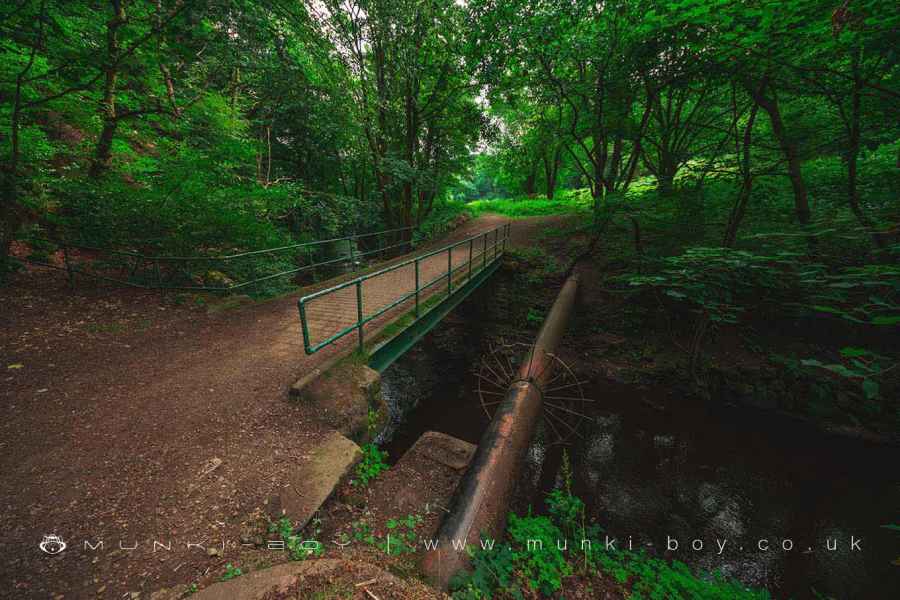
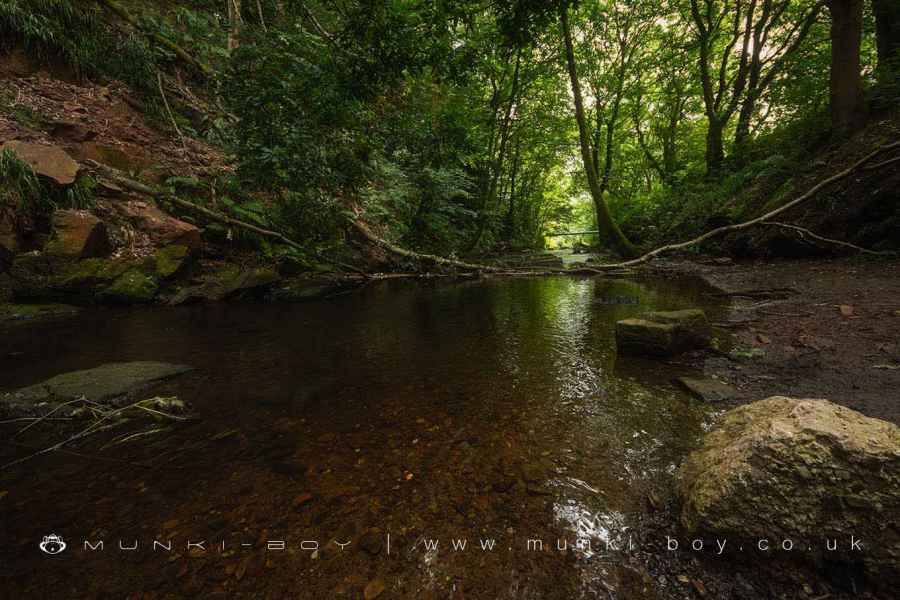
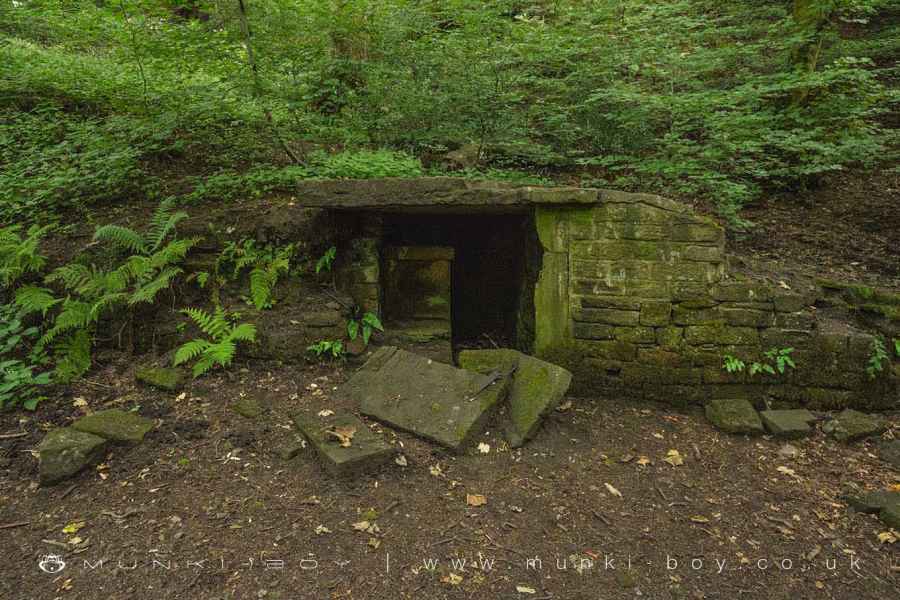
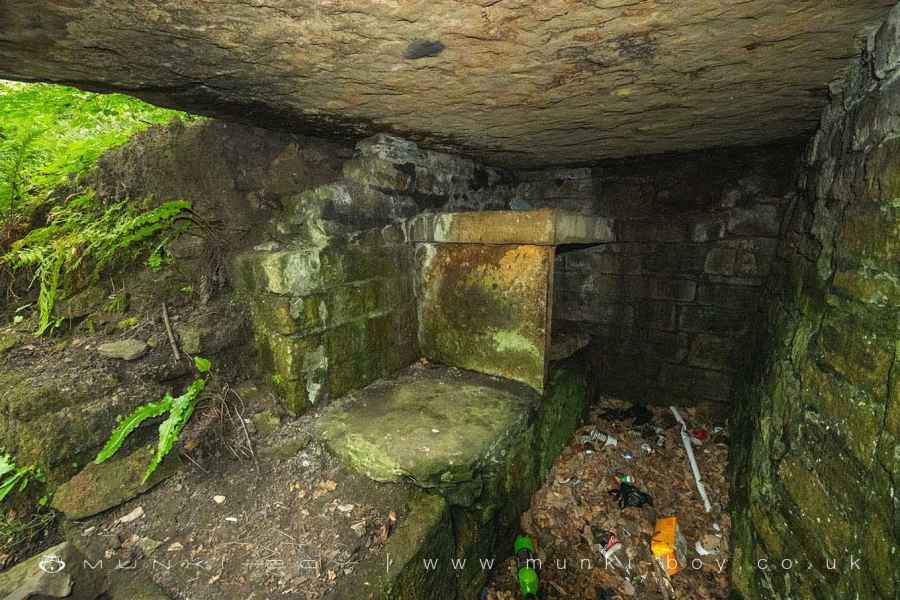
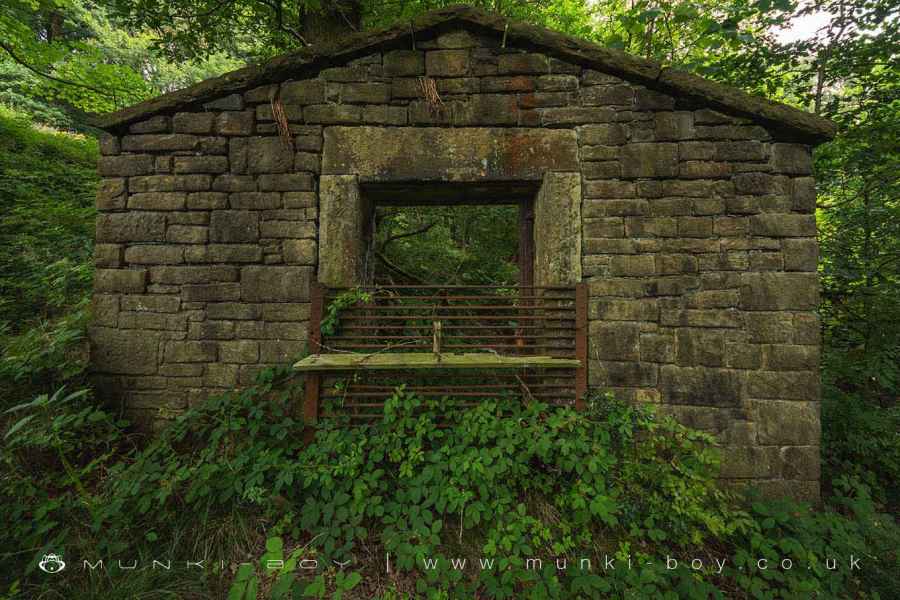
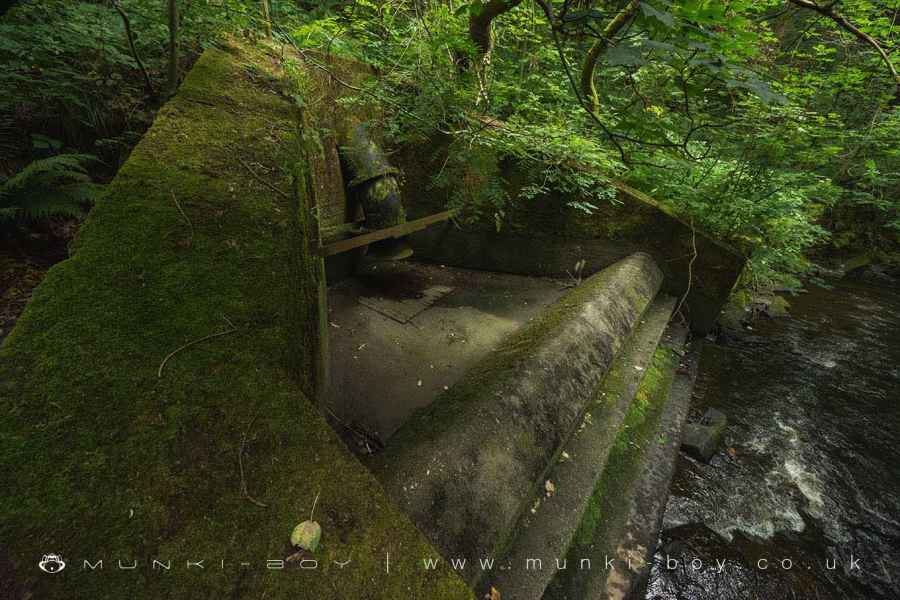
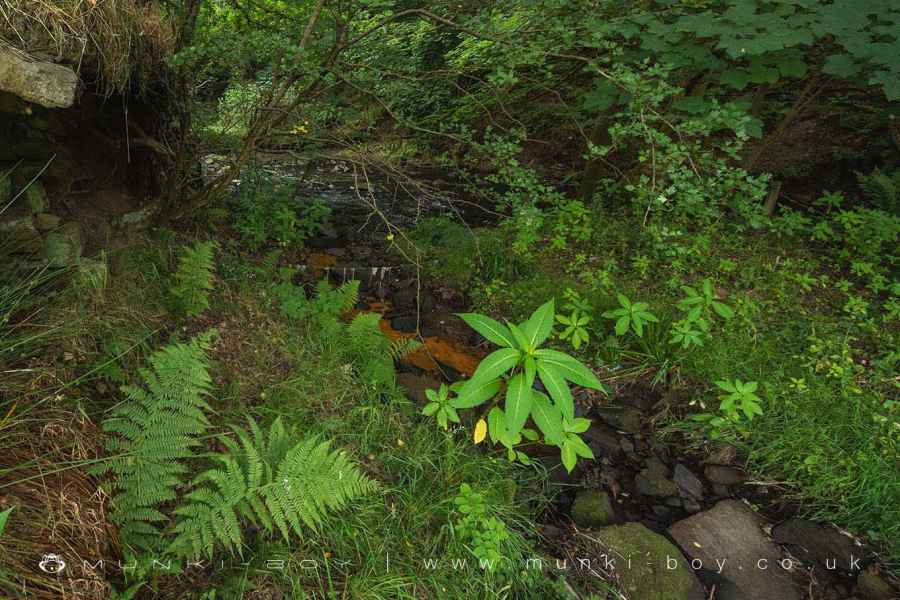
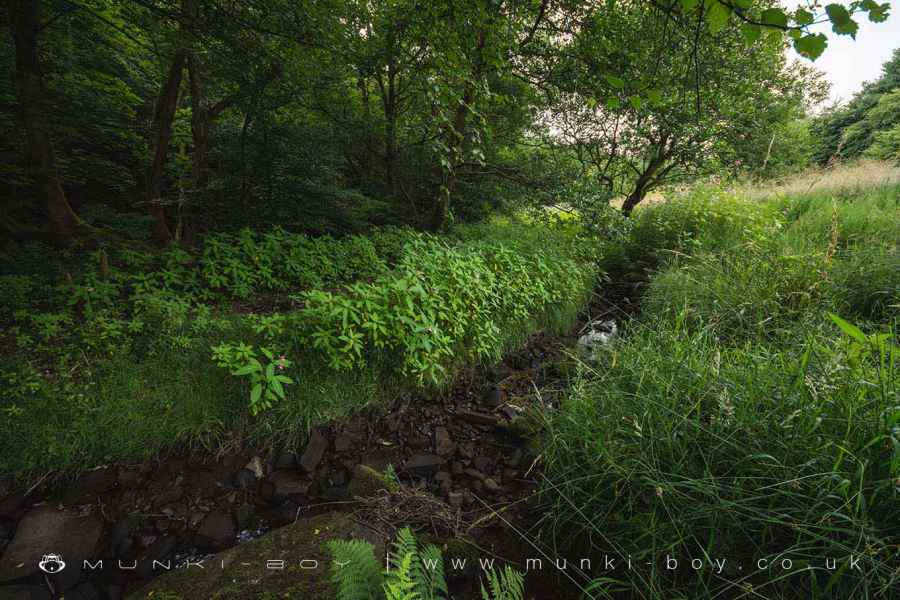
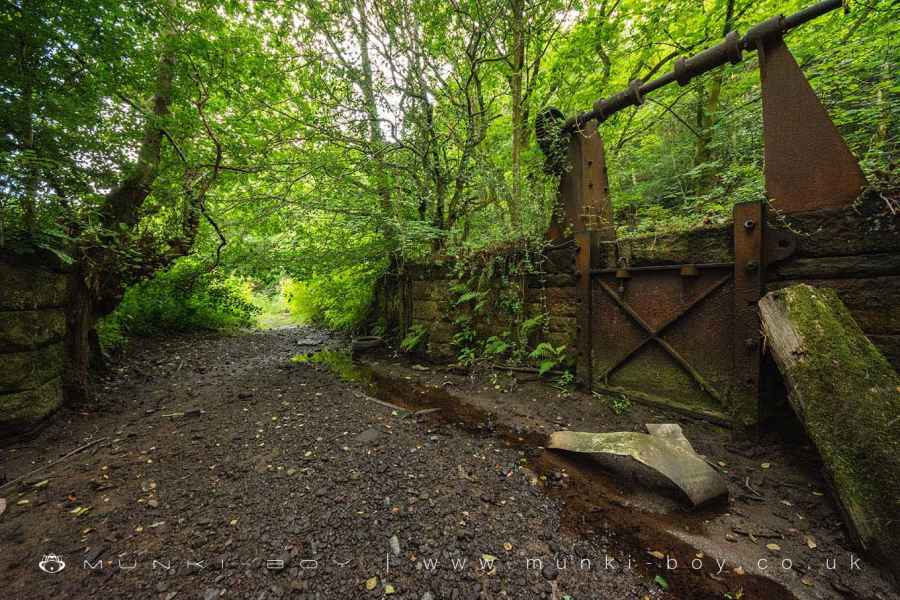
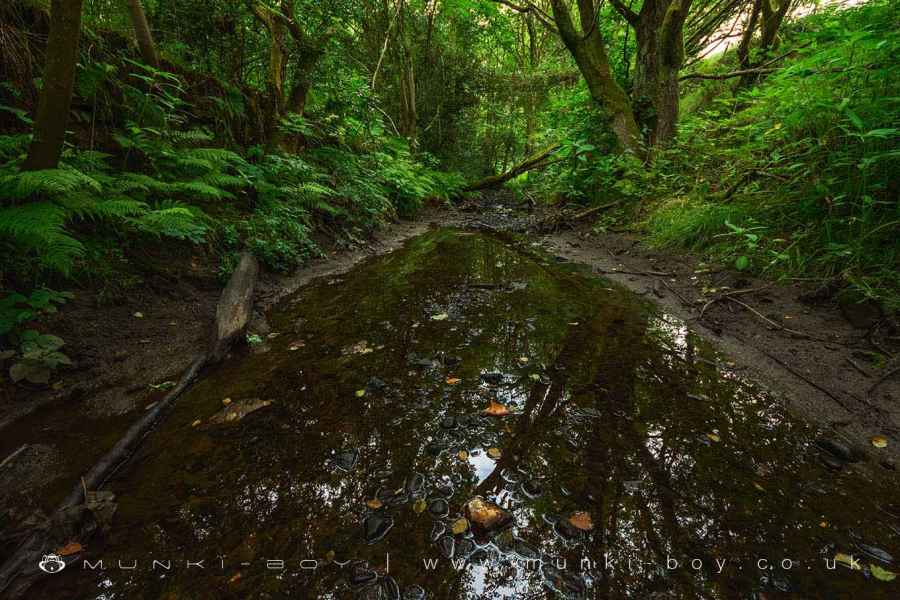
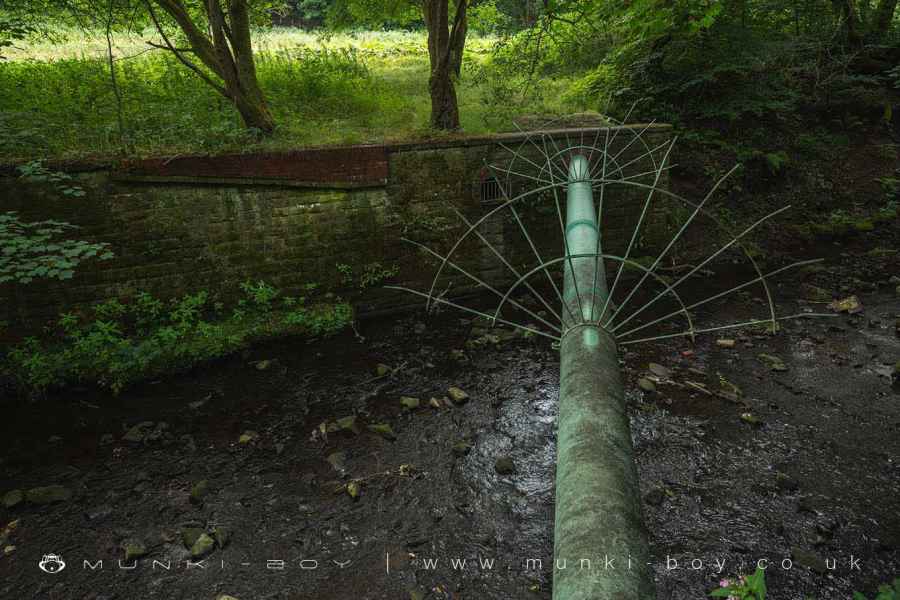
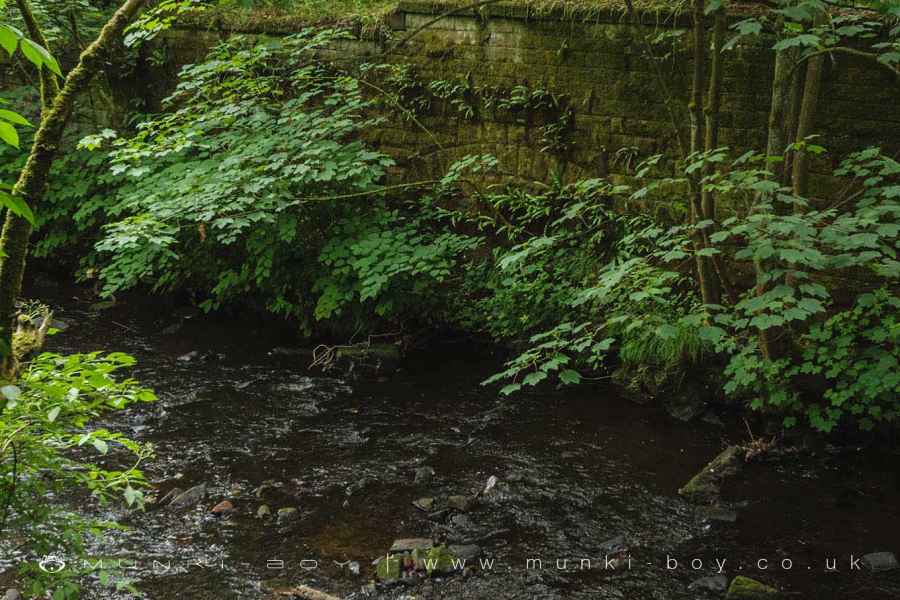
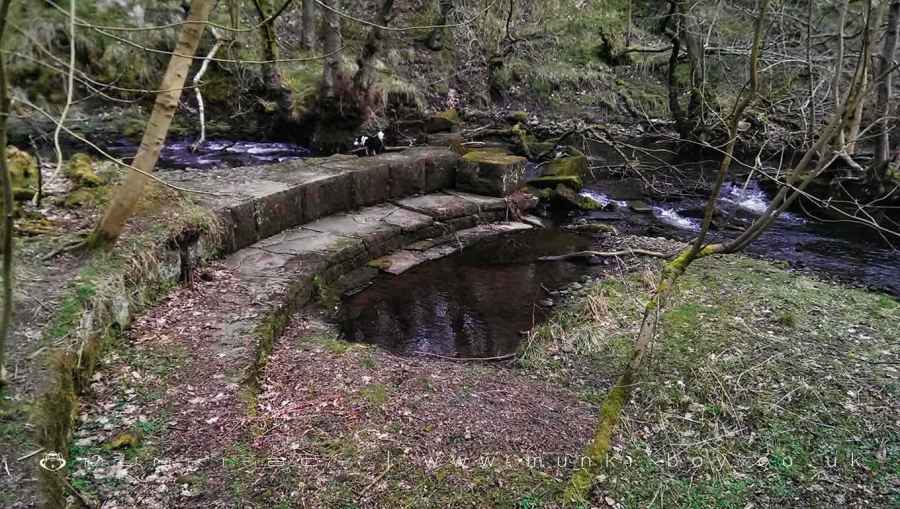
Eagley Valley LNR Details
Eagley Valley LNR is a nature reserve managed by .
Eagley Valley Local Nature Reserve Information
Eagley Valley Local Nature Reserve Address
Bromley Cross, Bolton, Greater Manchester
Eagley Brook Details
Eagley Brook
Eagley Brook is a river in Greater Manchester
Eagley Brook takes in water from an area around 31.536 km2 in size and is part of the Croal Irwell catchment area.
Eagley Brook is 11.848 km long and has been heavily modified by industry in the past.




